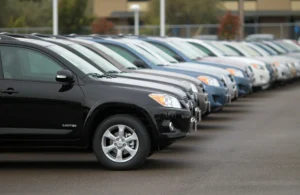High Emissions Hurt the Environmental and Your Pocket
If your car’s emissions are higher than they should be, it is not just the atmosphere that suffers. Your fuel costs will increase too.
Emissions testing is one of the most high-profile aspects of the modern MOT test, and if your car fails, it can be indicative of a variety of problems. Sometimes, it can be something as simple as a clogged air filter, but for older, high-mileage vehicles, high emissions are often a sign that the engine is reaching the end of its useful life.
Back in the 1970s and 80s, it was reasonable to expect a car engine to provide around 70,000 miles of service before it would start giving trouble. By then, the chances were high that rust would have set in, and it was time to contact your local car disposal company anyway. We are lucky today, in that cars are far less prone to corrosion, and the engines last longer. It is not at all uncommon for cars to clock up 150,000 miles or even more.
But they don’t last forever, and usually it is mechanical wear rather than rust that ultimately signals the end of an old car’s useful life. High emissions are an indicator that all is not well.
What causes high emissions?

There are a whole variety of possible causes, ranging from the relatively innocuous to the terminal. Sometimes, a good service can solve the problem, But if your car has been maintained at the correct intervals, and you know that things like filters, spark, plugs, distributor cap and so on are all OK, then the problem is potentially more serious.
Worn piston rings and valves can cause engine oil to mix with fuel in the combustion chambers, which will result in increased carbon monoxide emissions. If this is happening, you are likely to get additional tell-tale clues, in as much as your car will be using more oil than usual, and you might see additional smoke coming from the exhaust, especially on acceleration.
Another possible reason is that the fuel mixture is incorrect. Not only will this increase the emissions, it will also result in the car running less efficiently, meaning higher fuel consumption. As if that wasn’t bad enough, when the mixture is wrong, the spark plugs are likely to foul up, leading to even worse running and yet higher emissions. It is like a vicious circle.
New cars are more efficient
The progress that car makers continue to make every year is truly astonishing, and if you drive a car that is 10 years old or more, you will be amazed at how much more efficient today’s engines are.
Of course, the major focus is on electric cars and hybrids, but while these are obviously the most fuel efficient and environmentally friendly options, even modern petrol and diesel engines are a world away from those being produced in 2008.
Today’s engines are smaller, and therefore more fuel efficient, yet at the same time they produce more power than their predecessors. It all adds up to a better driving experience that is kinder to the environment and your bank balance.
If your old clunker is polluting the world, do everyone a favour, including yourself, by calling in a professional to recycle it.











